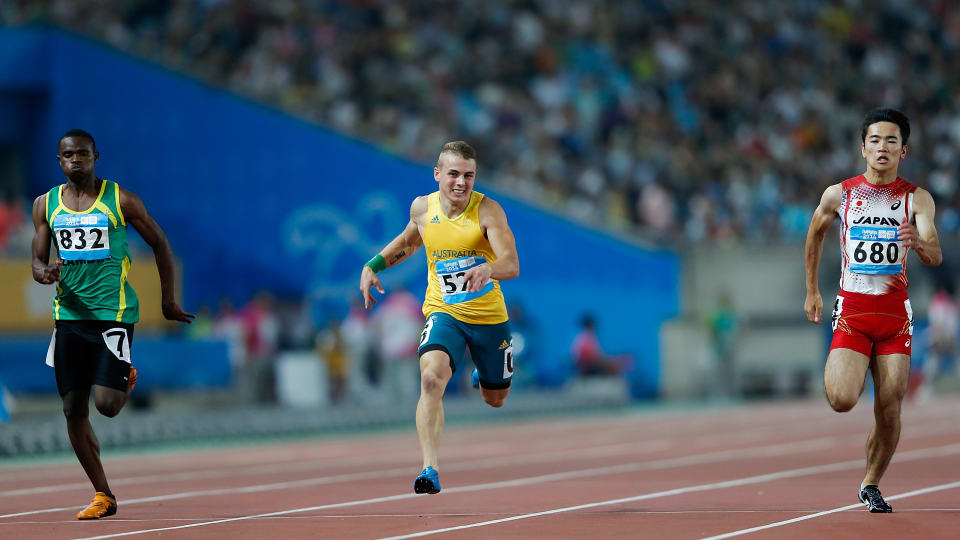Five things you didn't know about the Youth Olympic Games 2018

New disciplines and formats will keep things interesting in Buenos Aires.
The Argentine capital Buenos Aires will host the third Summer Youth Olympic Games (YOG).
It's only the second time a South American city has welcomed an Olympic event, after Rio 2016.
As with the previous two Games in Singapore and Nanjing, and the Winter YOGs in Innsbruck and Lillehammer, there will be innovations not seen at Olympic Games.
New disciplines and competition formats will be trialled once more. Here we've picked out five things you need to know.
No athletics finals
For the first time at an Olympic Games or YOG, there will be no finals in track and field (with the exception of the 4 km cross-country). That's right, there won't be a 100m final. Instead, track and field events will each be held twice, with results from both rounds counting towards the final standings.
The cross-country race makes its return, having last been contested at the Paris 1924 Olympic Games. It will form the second part of the competition for athletes competing in the 1500m, 2000m steeplechase, and 3000m, who will each do a heat of their own event before running the cross-country final.
All athletes in the throwing and jumping events will also compete in two stages of competition.
Gymnastics and sailing welcome new disciplines
Acrobatic gymnastics and kiteboarding will make their YOG debuts as new disciplines within gymnastics and sailing. There are three segments to acrobatic gymnastics: balance exercise, dynamic exercise, and the combined exercise. The best eight teams from 12 mixed pairs will qualify for the final.
Also on the schedule is a new multi-discipline team event, which will feature athletes from all four gymnastics disciplines: acrobatic, artistic, rhythmic, and trampoline.
Sailing welcomes kiteboarding to the fold, in the form of kitesurf. Each 'race' will consist of two heats and a final, with the best-performing teams across the series qualifying for the final race.
Variations on traditional sports
Field hockey will be contested in Buenos Aires as a shorter, quicker version known as Hockey5s.
Similarly, football will be replaced with futsal. Instead of 40-minute halves of 11-a-side played on an outdoor pitch, as was the case in Singapore and Nanjing, teams will play 20-minute halves of five-a-side on indoor courts.
Handball, meanwhile, is moving the other way, with the introduction of beach handball. Players will have more room to manoeuver, and will be able to make more diving plays as they will land on sand instead of a hard floor.
It'll be strong all-round cyclists who shine in Buenos Aires, thanks to the introduction of the combined team events. Instead of individual events in the road race, time trial, and mountain biking, the athletes will have to be able to produce in all three disciplines to score points for their team. There are separate events for men and women, involving a criterium, 60 km road race, and 7 km team time trial on the road, as well as a mountain biking cross-country eliminator and cross-country short circuit race. The discipline of BMX also welcomes the debut of BMX Freestyle ahead of Tokyo 2020.
All previous YOGs have included events in which there were teams comprised of athletes from more than one country. At Buenos Aires 2018, one such competition will be the table tennis mixed international team event. It's a characteristic that makes the YOG special, fostering teamwork and friendship across borders as team members must work together to do well regardless of their ability or where they are from. If one of these teams wins a medal, the Olympic flag is raised in recognition of the athletes at the victory ceremony. The Olympic anthem will be played for any mixed-country team that wins gold.
Information: https://www.olympicchannel.com/en/stories/features/detail/five-things-2018-youth-olympic-games-bueno...
















